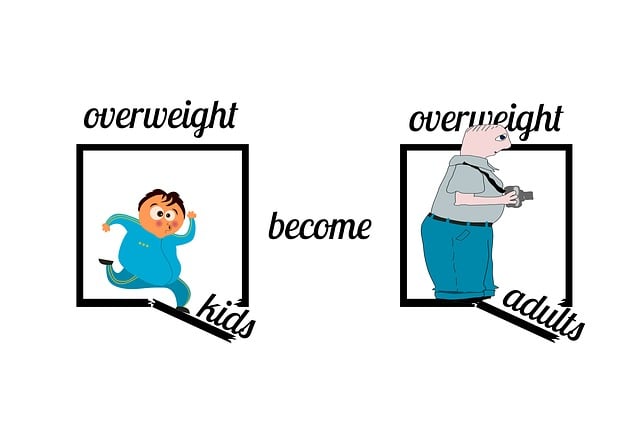Understanding medical criteria for weight loss surgery is crucial before pursuing it. Healthcare providers conduct thorough assessments, including medical histories, physicals, and tests, to determine eligibility. Key factors include severe obesity with comorbidities like type 2 diabetes or high blood pressure, and resistance to doctor-supervised weight loss programs. These evaluations ensure patients meet specific standards, with Body Mass Index (BMI) as a standard tool. Pre-surgery preparations involve participation in such programs to achieve healthy weights and improve overall well-being. Post-qualification care includes close monitoring, personalized plans, and emotional support, leading to long-term success rates superior to unsupervised programs. Trustworthy guidance from bariatric medicine specialists or experienced practitioners is essential for informed decisions and successful outcomes.
“Embarking on a journey towards weight loss surgery? Understanding the medical evaluation process is crucial. This comprehensive guide delves into the key aspects of determining eligibility, from meeting medical criteria and assessing health risks to the role of doctor-supervised weight loss programs. Learn how Body Mass Index (BMI) guidelines play a part, and discover the importance of clinical evaluations in monitoring your progress. Find out about lifestyle modifications, post-surgery care, success rates, and tips for choosing the right doctor for your transformative path.”
Understanding Medical Criteria for Weight Loss Surgery

Understanding the medical criteria for weight loss surgery is crucial before considering this life-changing option. It involves a comprehensive evaluation by healthcare professionals to ensure patients meet specific qualifications. These criteria often include severe obesity, with related health complications like type 2 diabetes or high blood pressure, that have not responded well to doctor-supervised weight loss programs.
The assessment process typically encompasses medical history reviews, physical examinations, and specialized tests to gauge overall health and determine if the individual is a suitable candidate for surgery. It’s important to remember that eligibility requirements vary across different countries and healthcare facilities, emphasizing the need for personalized guidance from qualified medical professionals.
Role of Doctor-Supervised Weight Loss Programs

Before considering weight loss surgery, individuals often go through a series of medical evaluations to assess their eligibility. A crucial component of this process is participation in doctor-supervised weight loss programs. These structured interventions are designed to help patients make sustainable lifestyle changes that support significant and healthy weight loss.
Doctors and healthcare professionals play a vital role in guiding patients through these programs, offering personalized advice, monitoring progress, and addressing any challenges or concerns. By participating in doctor-supervised weight loss programs, individuals demonstrate commitment to their health and increase their chances of being approved for surgical interventions like gastric bypass or laparoscopic sleeve gastrectomy.
Assessing Health Risks and Comorbidities

When evaluating a patient’s eligibility for weight loss surgery, assessing health risks and comorbidities is a critical step. This involves a thorough review of the patient’s medical history and current state by a qualified healthcare professional. The focus is on identifying any conditions that could be exacerbated or caused by obesity, as well as those that might complicate surgical procedures. Comorbidities such as type 2 diabetes, hypertension, heart disease, sleep apnea, and certain types of cancer significantly impact eligibility, often requiring specialized care through doctor-supervised weight loss programs to manage these conditions before surgery is considered safe.
During this process, doctors carefully consider the patient’s overall health, taking into account factors like cholesterol levels, blood pressure readings, and the presence of any other chronic diseases. These assessments are essential for determining the potential risks associated with obesity and ensuring that the benefits of weight loss surgery outweigh the possibilities of complications or adverse effects.
Body Mass Index (BMI) and Eligibility Guidelines

The Body Mass Index (BMI) is a widely used metric to assess an individual’s eligibility for weight loss surgeries like gastric bypass or stomach bands. It’s a simple calculation based on height and weight, offering a quick reference point for healthcare professionals. Generally, patients are considered eligible if their BMI is 35 or higher, indicating severe obesity. However, eligibility guidelines go beyond BMI. Doctors also evaluate overall health, including medical history, current medications, and any co-morbidities that might impact recovery.
A crucial aspect of the evaluation process is determining whether a patient has tried and failed doctor-supervised weight loss programs. This step is essential as it underscores the urgency and necessity of surgical intervention. Moreover, the healthcare team will assess a patient’s commitment to lifestyle changes, such as diet and exercise, to ensure they’re ready for the significant post-operative adjustments required in a successful weight loss journey.
The Importance of Clinical Evaluation and Monitoring

The clinical evaluation process plays a pivotal role in determining eligibility for weight loss surgery. It involves a comprehensive assessment by healthcare professionals, including doctors and dietitians, who meticulously review an individual’s medical history, current health status, and lifestyle factors. This step is crucial as it ensures that the patient meets the specific criteria set by medical authorities for surgical intervention, prioritizing their safety and long-term success.
During this evaluation, various elements are considered, such as the patient’s body mass index (BMI), the presence of coexisting medical conditions, their commitment to lifestyle changes, and the potential risks associated with surgery. Doctor-supervised weight loss programs often include these evaluations, offering a structured approach to help individuals achieve healthy weight loss goals while monitoring their progress and well-being. This meticulous process is essential for making informed decisions regarding weight loss surgeries, ensuring patients receive the most suitable treatment options for their unique circumstances.
Lifestyle Modifications and Pre-Surgery Preparations

Before considering weight loss surgery, individuals must first embark on a journey of lifestyle modifications and pre-surgery preparations. This crucial step involves close collaboration with healthcare professionals, particularly doctors who specialize in bariatric medicine. They guide patients through doctor-supervised weight loss programs, which encompass dietary changes, exercise routines, and behavioral counseling. These interventions are designed to not only help individuals achieve a healthy weight but also improve their overall well-being.
During this period, patients are expected to demonstrate commitment and consistency in implementing these lifestyle changes. This may include adopting healthier eating habits, increasing physical activity levels, and addressing any psychological barriers that could impact their surgical journey. Pre-surgery preparations also involve medical tests and evaluations to ensure the patient’s overall health and eligibility for the procedure, thereby enhancing the chances of a successful outcome.
Post-Qualification Care and Support After Surgery

After being qualified for weight loss surgery, patients can expect comprehensive post-qualification care and support from their medical team. This includes close monitoring to ensure proper healing and recovery, as well as long-term guidance on lifestyle changes to maintain results. Doctor-supervised weight loss programs play a crucial role in this process, offering personalized nutrition plans and regular check-ins with healthcare professionals.
The support extends beyond surgery, focusing on emotional well-being, support groups, and continued education about healthy eating habits. Regular follow-up appointments help in managing any potential complications and provide an opportunity to discuss progress and address concerns. This holistic approach ensures patients feel supported throughout their weight loss journey and have the tools necessary for long-term success.
Long-Term Success Rates and Patient Testimonials

The long-term success rates for weight loss surgery are a testament to its effectiveness as a treatment option. Studies show that patients who undergo bariatric procedures, when followed up over several years, maintain significant weight loss compared to those participating in doctor-supervised weight loss programs. This sustained reduction in body mass index (BMI) can lead to improved overall health and quality of life. Patient testimonials further reinforce these findings. Many individuals share their experiences, highlighting the transformative power of surgery in helping them achieve goals they previously thought unattainable, boost their confidence, and enhance their overall well-being.
Finding the Right Doctor for Your Weight Loss Journey

Embarking on a journey towards weight loss surgery is a significant step, and finding the right medical professional to guide you through this process is crucial. Look for doctors who specialize in bariatric medicine or have extensive experience with doctor-supervised weight loss programs. Their expertise ensures they can provide personalized guidance tailored to your unique needs and health status.
The ideal physician should offer comprehensive evaluations, including medical history reviews, physical examinations, and possibly specialized tests to assess your eligibility. They should also be adept at communicating complex information in a simple manner, ensuring you understand the procedures, potential risks, and benefits of surgery. This open line of communication fosters trust and empowers you to make informed decisions about your health.
